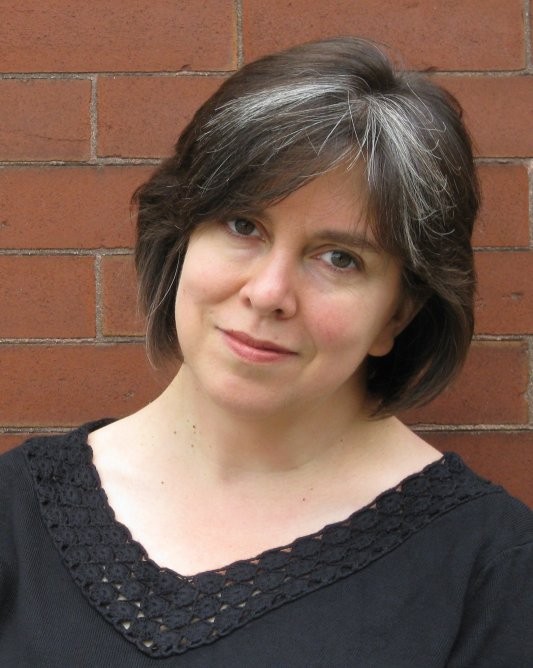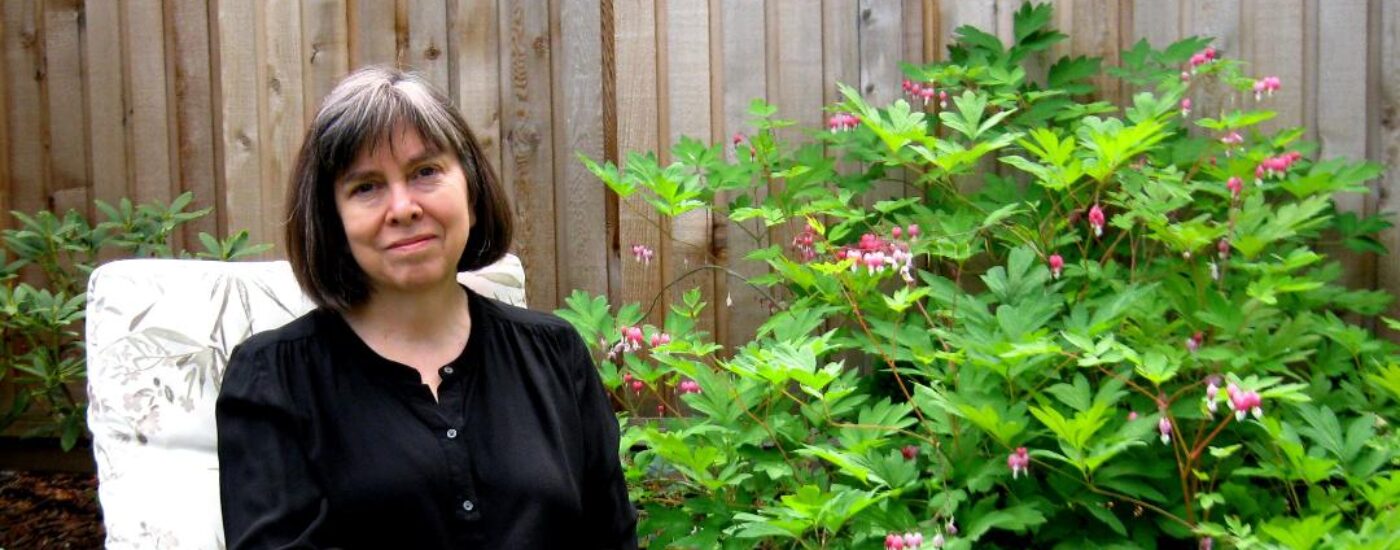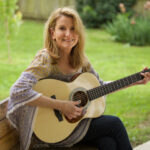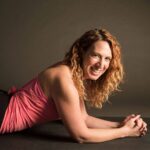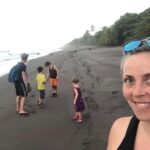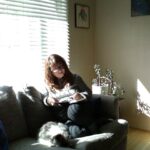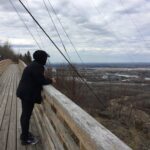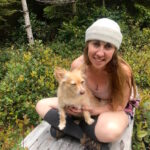Today we raise our fists high and put our hands together in celebration of our Feature Girl Warrior, the talented award-winning author, Elizabeth Bass, with over forty novels in multiple genres to her credit. As Liz Freeland, she writes the Louise Faulk historical mystery series, which is set in New York City in 1913. The second in that series, Murder in Midtown, was awarded the Bony Blithe Light Mystery Award for 2020. Under another pseudonym, Liz Ireland, she has an upcoming holiday series that will feature a new sleuth: Mrs. Claus. The first book, Mrs. Claus and the Santaland Slayings, will be released in October 2020. Liz was born in East Texas and credits a rural upbringing in a houseful of books for her lifelong love of stories. After earning a Bachelor of Fine Arts in Theater from Southern Methodist University in Dallas, she moved to New York and worked various jobs (book clerk, world’s slowest professional typist, substitute teacher) before landing a job in publishing. Since then, she’s made her home in Austin, Portland (Oregon), Ottawa, Montreal, and now Vancouver Island in British Columbia. In her free time, she enjoys playing clarinet and saxophone in local concert bands, watching classic films, and—of course—reading. In addition to her writing career, Liz has worked for two decades as a fiction editor. She’s a member of Mystery Writers of America, Sisters in Crime, and has served as a regional representative for Crime Writers of Canada. And to that we say an enthusiastic YES!
What makes you a Girl Warrior?
Warrior in its traditional sense isn’t a word I would choose for myself. I’m the opposite of a fighter—spine of Jell-O, actually. But in writing, like many of the arts, the long-term challenges are mostly internal. We face a blank page, canvas, or stage, and the challenge to rededicate ourselves to our right to fill it is something that goes on every day. The financial rewards are usually not great, and our failures—our less successful ventures, I should say—are often public. As a writer, I’ve been battling the blank page for over half my life and over forty books. When things are going well, it’s the best life I can imagine. Yet there are also long stretches when I wake up every morning wondering if it’s too late to become a veterinary assistant. I think the traits creative people need most are persistence, resilience, and a steadfast resistance to common sense.
Books have the power to transform lives and change our perception of the world. Do you remember the first book you read that had that effect on you and why?
A vivid memory is standing in front of one of those spinning wire paperback racks in my elementary school library, transfixed by the back cover copy of The Diary of a Young Girl by Anne Frank. Transfixed and stunned. My hometown had two churches, a school, and a gas station, so the number six million in terms of people—people killed—was hard for me to process. I devoured the diary and didn’t think about anything else but Anne’s family and the Secret Annex for weeks. For the first time I took a hard look at prejudice, both around me and in myself. It was the first book that rewired my brain.
How did growing up in rural East Texas influence your “voice” as a storyteller?
In terms of becoming a writer, one of the luckiest things about growing up in a rural area was the isolation. Our house was full of books and there wasn’t a whole lot else to do. I was fortunate to have older siblings who not only enjoyed reading but also telling and writing stories. When I was pre-school age, my sisters spent summers and rainy weekends writing a series of semi-autobiographical fiction stories about my middle sister and her friends, which were then carefully copied and illustrated. Hanging out in their writer’s room, in which I was allowed observer status only, is probably what infected me with the writing bug.
You moved from Texas to New York where you landed your first job in publishing. What were those early days in New York like?
It was such a rush, especially in the beginning. I landed there when I was twenty-one, but I was absorbing so much all the time that in a way it was like being a toddler again. I spent two years doing a variety of jobs—book clerk, substitute teacher, typing labels for a delivery company in the days just before the dawn of computers. When you’re typing labels for eight hours, every day seems like a year. By the time I was interviewing for editorial assistant jobs in publishing, I was so battle-scarred from my two years of unsuccessful job hopping that I was afraid the personnel departments would reject me for being a washed-up twenty-three-year old.
What is it about mystery writing and crime fiction that appeals to you?
A mystery is a puzzle inside of a story, and the challenge for a writer is to balance and resolve both those aspects of the plot in a satisfying way. Part of the appeal, too, the exploration of characters’ darker motivations. And as a reader I find the thrill-ride aspect of crime fiction to be addictive. Cleverly done twists and suspense, the dropping of clues in a way to keep the reader either slightly ahead of or just behind the protagonist, is something that dazzles me when it’s done well.
Where do you get your inspiration for your characters?
Some characters have been inspired by real or historical people, but most are purely imagined—although I’m always watching for gestures, habits, and verbal tics in people around me; I’m a sponge that way.
You write under different pseudonyms – Liz Freeland and Liz Ireland. Does using different names help when writing for different genres? Or is it more about managing expectations of your fan base?
Pseudonyms are used for several reasons, but most often it’s to signal to readers that an author is writing in a different genre or style. My Liz Ireland books tend to be lighter and more comedic in tone than Liz Freeland or the ones written under my own name.
What’s the first thing you do when you start writing a new book?
Craftwise, when I have an idea, I’ll start by writing a chapter or two to see if the characters I have in mind speak to me. If they do, I’ll stop and write an outline of the plot, usually about eight to ten pages. A lot of writers prefer to make the story up as they go along, but a synopsis is essential to me.
In terms of ritual, one thing I do is clean my office and desk before I begin. When I’m in the weeds of writing a novel, I spend less and less time cleaning. By the time I finish, I’m buried in a blizzard of research notes and books, stacks of edited manuscript drafts, unfiled mail, and other clutter. If I didn’t at least start out with a tidy room I might never dig my way out.
There’s the book and there’s the book deal. How did you feel when you learned your first book was going to be published?
Ever had a dream that you could fly? That’s how I felt when I got “the call.” I don’t think my feet touched the ground for a week. My first book took a year to wind through the process of being reviewed by the publisher. I’d written another full manuscript by the time it was accepted. Happy doesn’t begin to describe the feeling. And I have to say, this happens every time I sell a book. Every single one. It’s the biggest rush—right up to the moment when the editor’s revision letter hits my inbox. That usually thumps me back down to the ground, and I remember that selling a book isn’t the end of my work.
You wear two hats – writer and fiction editor. If you had to make Sophie’s Choice, which would it be?
I would choose to write, definitely. I enjoy editing fiction, but writing is a compulsion. Back in the 1980s, my grandfather, a businessman, retired from his business…and was back working at his shop a week later. At the time it seemed nuts, but I absolutely understand where he was coming from now. The day after I retire from writing, I will probably get up, make coffee, and type Chapter One at the top of a page.
You just won the Bony Blithe Light Mystery Award for 2020. Congratulations! What does winning this award mean to you?
Thank you! Writing is a mostly solitary venture and publishing is a crowded field, so it’s easy to feel as if individual books aren’t making much of an impact. That’s why I was honored to be nominated for an award, and surprised and happy to win it. It means some people in the mystery community saw and appreciated what I was trying to do with this book, and that’s a real shot in the arm for a writer.
What’s your favorite genre as a reader?
I love crime fiction, and probably the authors I get most excited about write in sub-genres I don’t: police procedurals and suspense/thrillers. I also love long Victorian novels, especially authors like Elizabeth Gaskell, George Gissing, and Anthony Trollope.
What are you reading right now?
I always have at least one audiobook I’m listening to, an ebook queued up on my Kindle, and a bound book. Right now I’m in the middle of Rebel Cinderella by Adam Hochschild, a biography of Rose Pastor Stokes, an early feminist and socialist who married into one of America’s richest families. I’m also reading a mystery by a favorite British Columbia mystery writer, R.M. Greenaway, called River of Lies. It’s the last of the books in her B.C. Blues series, which have twisty plots and complicated characters. And I just started Blanche on the Lam by Barbara Neely, the first in a mystery series that was written in the 1990s featuring a clever domestic worker-turned-gumshoe protagonist. It’s very entertaining, and I’ll be reading the other three Blanche books as soon as I can get my hands on them.
How did you end up living on Vancouver Island? Does geography affect your writing?
My husband and I moved here from Montreal because we’d lived in Oregon years ago and love West Coast weather. As a native Texan, I never completely acclimatized to five months of snow. So far, my own geography hasn’t affected my writing because I rarely write about the where I’m currently living. My books tend to be set in places where I’ve lived in the past or feel I know intimately, or in completely imaginary worlds. (Case in point, my next book is Mrs. Claus and the Santaland Slayings.) Writing is a bit of escapism for me, and I enjoy letting my imagination roam to the New York City of 1914, or towns like the one I grew up in, or places that are completely my own.
What do we need to know “for sure” about making a living as a writer?
From a dollars-and-cents perspective, the surest thing about making a living as a writer is that it’s difficult. To survive, you almost certainly need to find other ways to support yourself financially. I’ll add a second thing: Though writing is usually solitary work, to thrive it’s essential to seek out others in the writing community, either online or through local and national writers groups. The publishing world is an ever-changing business, and trying to navigate it on your own is like attempting to cross the Atlantic in a plastic pool float.
What are the top 5 books you think every woman should read?
I don’t feel at all capable of giving an authoritative answer here; there’s so much I haven’t read! I do know that if you read widely, you find voices that speak to you. When I was in college and in my twenties, I was exposed to a lot of the mainstays of feminist literature, but I’ve also drawn inspiration from unexpected places. Lauren Bacall’s autobiography, By Myself, was an early lesson in grit and resilience. We Band of Angels by Elizabeth Norman, which tells the story of the nurses of Bataan in World War II, was inspirational to me when I was going through a low point. I think Middlemarch by George Elliot is one of the greatest novels I’ve ever read, and I try to return to it fresh every decade or so. Testament of Youth by Vera Brittain had a lasting effect on how I viewed everything from war to women’s rights. But in terms of how to navigate the slings and arrows of one’s personal life with both spine and humor, I would recommend anything by Nora Ephron. I started with Heartburn, which also has the advantage of containing some good recipes.
What would you say to your younger Girl Warrior?
I would tell me not to confuse criticism with discouragement. I’ve always struggled with self-esteem, and when I was younger, especially, a word or two of criticism could stop me cold. It took me years to realize that criticism could be helpful and absorbed, or simply wrong and ignored.
What would you say to future Girl Warriors looking for inspiration?
You are the raw material that you have to offer the world, so even as you soak in all you can and seek out mentors and get excited about the work other people have done, develop a confidence in your own vision and voice.
Who is/are your Girl Warrior hero(s) and why?
Right now there are so many women doing a lot of heavy lifting in their professions. I watch Dr. Bonnie Henry every day and am always struck by her quiet authority, and I’m so grateful for the way she’s steered British Columbia through the Covid-19 crisis so far. In the publishing world right now I’m in awe of Kellye Garrett, who in addition to being a great mystery writer is one of the founders of an organization called Crime Writers of Color. Her unyielding advocacy for authors who have not gotten their due in the field of mystery publishing has been incredible. She’s opened my eyes to authors I hadn’t read, like Barbara Neely.
Blue Sky it. No boundaries here, just limitless opportunities. Where do you see yourself in 5 years?
I’ll be living half the year in a charming town in France, hurrying to finish the latest in a fabulously successful mystery series soon to be adapted for television, while trying for the hundredth time to learn to speak French. Note: even blue skying it, I can’t imagine myself already speaking French fluently.
What is the one lesson that’s been the hardest for you to learn?
Life isn’t one long dress rehearsal. Often there will be no second chance to do the right thing, and those mistakes will haunt you.
If a Broadway play were written about your life, what would it be called? Who would play you?
If someone had to play me, I’d want it to be the actress Margo Martindale. She grew up near where I did, and I met her once and she was wonderfully kind. She’s also fabulous in everything she does. She would be the perfect actress to star in Long Day’s Journey into Keyboard Psychosis.
To learn more about Elizabeth and the novels she has written head over to her website at: https://elizabeth-bass.com/
Follow Elizabeth Bass on Facebook at: https://www.facebook.com/Elizabeth-Bass-106428909387140/
And Liz Freeland on Facebook at: https://www.facebook.com/authorLizFreeland/
And on twitter at: https://twitter.com/ElizabethBass
